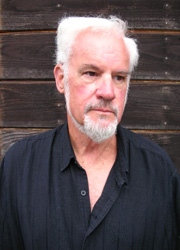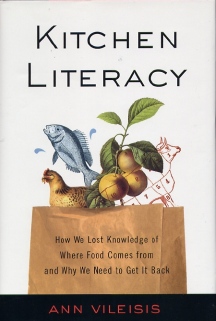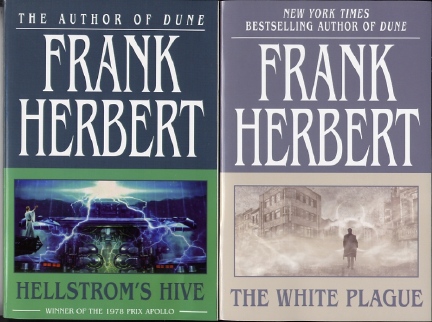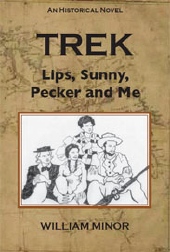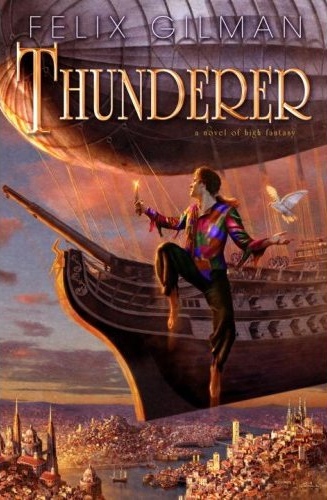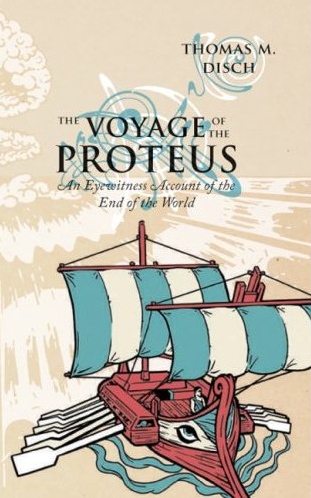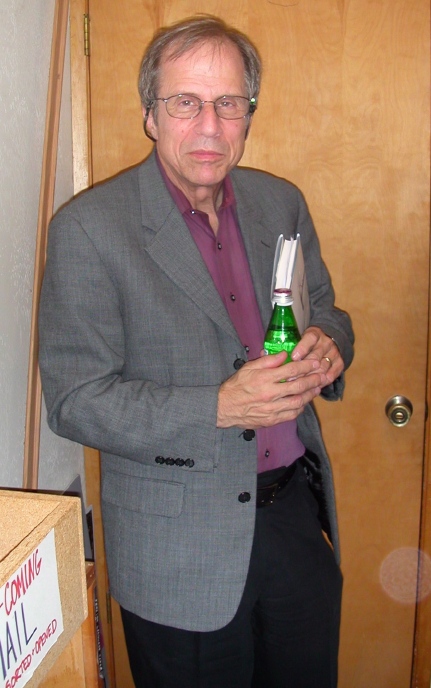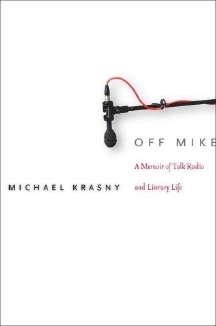|
|
|
|
This Just In...News
From The Agony Column
|
| |
|
12-07-07: Ann Vileisis Looks for 'Kitchen Literacy' ; Agony Column Podcast News : A Conversation With Jeremy Lassen of Nightshade
Books : E-Books & Free Books
|
'How We Lost Knowledge of Where Food Comes from and Why
We Need to Get It Back'
|
|
Bringing
home stories of food.
|
We all know that things ain't what they used to be. But the corollary is
true as well; they ain't what they're gonna be, either. Change happens
on both sides of the present. The way we eat has changed. It is in the
process of doing so at this moment. Get used to it.
Ann Vileisis wasn't looking to write about food. She was simply trying
to buy some. But as she wandered the aisles of the supermarket, she began
to wonder about the stuff she saw; where did it come from? That was ten
years ago; now she's achieved 'Kitchen Literacy: How We Lost Knowledge
of Where Food Comes from and Why We Need to Get It Back' (Shearwater Books
/ Island Press ; October 24, 2007 ; $26.95). Her book is a fascinating
history of where we've obtained our food from and how we've perceived it
over the last 200-plus years. It's just the latest in a number of food-based
books that have been coming my way. Each of them has a different approach,
from Molly Katzen's cookbook, to Anthony Bourdain's cooking travelogue
to Michael Pollan's examination of a four meals. Vileisis, after a brief
introduction, gets straight to the good stuff – a look at Martha's
kitchen.
Not the Martha that leaps to mind, however. This is Martha Ballard, who
kept a very detailed diary of her doings as a midwife in the late eighteenth
century. Vileisis combed through these famous diaries and found food stories;
tales of turkeys from egg to table, stories of planting one year for food
eaten the next. She found a landscape of food that surrounded Martha. In
a sense, Martha Ballard could almost see where all her food came from.
Vileisis starts here and takes readers forward through a fascinating history
of food, with high-points of advertising, the proto-FDA and the rise of "scientific" food.
It's a revealing and entertaining trip. Vileisis unearths lots of interesting
characters along the way; Gustavus Swift, who single-handedly created the
meat distribution system we have today, and Harvey Wiley, who brought together "The
Poison Squad," a team of brave young men who volunteered to eat ever-increasing
amounts of additives to test the threshold. She doesn't go the route of
Sinclair Upton (though he gets mentioned) in terms of going the gross-out
factor as to how food today is produced. Instead, she looks at how we perceive
that food, and the societal influences on that perception.
Take for example dirt. Dirt. Back in Martha Ballard's time, dirt was not
a bad thing. You grew stuff in dirt. But as cities grew, as they became
bigger and filthier, dirt took on a new meaning. It was not the font of
life; it was the stinking remains of death. Food didn't grow in dirt; it
grew in the markets, the only places that city dwellers could buy their
food.
They’re still the main places we can buy our food, but not the only
places. As Vilesis looks from the past to the present and thinks about
the future, we're entering a brave new world where the keywords are local
and organic. That's the dilemma, which to buy when presented with a choice?
Molly Katzen and I talked about this, and coming at it from a different
perspective, her conclusion was much the same as that reached by Vileisis.
It depends. There's no blanket answer, no formula. Only the certainty of
change. Ten years ago, you bought your food in one fashion, for one set
of reasons. You had a certain set of knowledge about that food. Ten years
hence, you'll know something different.
|
Agony Column Podcast News : A Conversation With Jeremy Lassen of Nightshade
Books : E-Books & Free Books
Today's podcast is another in a series of continuing conversations with
Jeremy Lassen, publisher of Night Shade Books. Today, we're going to speak
about E-Books and Free Books, which many view as the beginning of the end
for those paper bricks we so love. Frankly, I'm not so sure that books
as we know them are as close to extinction as some would have us think.
As a publisher of actual hardcover books, Mr. Lassen may have a rather
different opinion. Is Kindle kindling on the fire for Fahrenheit 451? Or
is it the next Sega Dreamcast? Can you give away books online and hope
to sell your customers hard copy? A
quick listen to the MP3 of my conversation
with publisher Jeremy Lassen will shed some light, or help light the fire.
|
| |
|
12-06-07: Frank Herbert's 'The White Plague' and 'Hellstrom's
Hive' ; Agony Column Podcast News : Kathryn Petruccelli Interviews Bill Minor
|
Keeping the Classics in Print
|
|
Great
trade pb format..but for some small print in The White
Plague. |
I was talking with
Jack Rems of Dark
Carnival Books back in September and
he spoke about the importance of keeping the classics in print. I mentioned
the recent spate of Frank Herbert reprints from Tor, and having received
yet another a couple of days ago, thought I'd write about them, because,
really, they're quite nice. Well, maybe it was more than a couple of
days ago, looking at the release dates. And sort of nice is probably
better
than quite nice. But they are classics and they are being kept in print.
The first to catch my attention was 'Hellestron's Hive' (Tor / Tom Doherty
Associates ; April 7, 2007 ; $14.95). I like the classic-seeming but
actually new cover art by Stephen Youll, and the trade paperback format
here is excellent. The print is large, the book is easy-to-read and the
binding is kind of loose, so that it can lay flat on the lunch counter
while you wolf down a couple of carnitas tacos. Or these days, a fruit
salad, alas.
But what should draw readers to the book is the book itself. 'Hellstrom's
Hive' is Frank Herbert writing a contemporary thriller, a dystopian vision
of America written as the sixties imploded around him. The basic setup
is quite simple. There's bad, the US police state, and worse, Hellstrom's
Hive. Since we're currently living in a state that bears no small resemblance
to Herbert's paranoid-at-the-time vision of a future police state, readers
are going to experience some weird resonances. At least there's something
to fear; the Hive, humans crammed into a bunch of caves in Oregon and living
like insects because they like it. Agency and Hive are unpleasant alternatives,
but perfect fodder for a science-fiction horror thriller. Herbert's in
pretty good form here. He lays on the horror and smothers the reader with
sensory overload. 'Hellstrom's Hive' has a significant "ick" factor
that you don’t often find quite so punched up in Herbert's work.
In the horror-visions, Herbert's evocative prose is actually quite powerful,
even if it's in the service of cheese. As for the Agency, Herbert writes
a decent conspiracy thriller that some may find on the talky side. And
as with many Herbert standalones, you get the feeling that the book does
not so much end as stop mid-stream. In a better world, Herbert would still
be with us, writing follow-ups, bringing Hellstrom into the 21st century.
But at least we got our police state. Woo hoo! Who knows, maybe there's
a damn commie Hive out there.
Fortunately, terrorism has not yet inspired the reaction that drives the
plot in 'The White Plague' (Tor / Tom Doherty Associates ; October 2, 2007
; $14.95). Stephen Youll once again provides the eerie cover art. But if
you thought that 'Hellstrom's Hive' was a pleasant surprise inside, you'll
be unpleasantly surprised by the tiny type crammed into the pages of 'The
White Plague', which is a shame because it's a pretty damn-near great apocalyptic
thriller and unnervingly relevant. One man's family is killed by terrorist
bomb in Ireland. As it happens, he's a scientist who creates a plague that
kills women. All Women. Humanity is screwed, and well it should be. Herbert's
wide-screen skills and close-up details create a convincing mental picture
of the world spiraling into chaos from which there is likely no escape.
His prose is superb, the pacing is brisk and his imagination unfettered.
This last leads to another non-ending; I recall reading this when it was
first published and hoping for a series. Nonetheless, it's a gripping work
by one of science fiction's masters, and the sort of novel that could lead
impressionable minds of any age down the road of reading science fiction.
Oh the horror! Another dweeby reader is born. This is why science fiction
needs to be reprinted. 'Hellstrom's Hive' and 'The White Plague' are good
books that show us our past, our present and make us fear the future. It's
important to keep these books in print, though it's also important to make
sure that print is sufficiently easy to read.
|
Agony Column Podcast News : Kathryn Petruccelli Interviews Bill Minor : Trek: Lips, Sunny, Pecker & Me
|
|
|
Bill
Minor and his new novel.
|
Today's podcast finds KUSP's Kathryn Petruccelli
interviewing musician, poet and novelist Bill Minor.
He started out as a visual artist influenced by the likes of William
Blake, e.e. cummings, and Kenneth
Patchen, published his first book of poems and prints in 1974 and
hasn't looked back. He's writes about jazz music for Down Beat,
Jazz Notes, Modern Drummer and more. An accomplished jazz musician
who plays piano, drums, tenor guitar(?!) and sings, he's written
three books about music, including 'Unzipped Souls: A Jazz Journey
Through the Soviet Union.' His latest book, 'Trek: Lips, Sunny,
Pecker and Me' – is also perhaps his earliest. It
and all his work are available from his website. You can hear
him tell Kathryn Petruccelli the story and read from the
book,
which is suitably odd for the listeners of this podcast, in
this MP3 Interview. Just hope your family vacation is as interesting
as Trek; or perhaps not!
|
| |
|
12-05-07: 'Thunderer' by Felix Gilman ; Agony Column Podcast
News Report : Dana Mackenzie 'The Big Splat'
|
Stranger Streets Than Those We Know
Who would have guessed that twenty-first century fantasy would find a touchstone
not in J. R. R. Tolkien, but Charles Dickens? Dickens was a hardcore
realist, a man who wrote about the social ills of his time with a passion
that has remained powerful to this day. His gritty evocation of Victorian
street life was the product of observation, not imagination. Even his
primal fairytale ghost-story 'A Christmas Carol' rails against the injustices
the rich visit upon the poor. And the conditions he wrote about in the
mid-nineteenth century linger on around the globe, glossed over with
a layer of cell phones and laptops. Dickens hardly seems the proper inspiration
for those seeking to create new world out of whole cloth.
Still, it’s easy to trace his enormous impact on the fantasy of the
present, from Mervyn Peake's iconic 'Gormenghast' to China Miéville's
'Perdido Street Station' to 'Thunderer' (Spectra / Bantam / Random House
; January 1, 2008 ; $24.00) by first-time novelist Felix Gilman. But the
moment you meet Jack Sheppard standing on top of Barbotin House in the
city of Ararat scheming to make his escape, you can hear the word urchin
even though it is never uttered. And even as he makes his escape using
crude magic, you can't help but notice that the man he's escaping from
is named Mr.Tar.
'Thunderer' begins when Arjun the monk arrives in Ararat to be part of
the return of the Bird. This is not the sort of Bird that gets flipped
on the freeways. In fact, nobody in Ararat can agree precisely what sort
of bird the Bird is, only that it is impossibly huge and about to wreak
changes in Ararat that may last for as long as the city stands. Which may
not be for all that long once the titular weapon, the Thunderer comes into
play. Magic, machinery and the machinations of all-too human forces, plus
a few rather inhuman beings ensure that the skullduggery which brought
about the creation of the Thunderer is not the last plot to play out amidst
the rotting buildings and crumbling streets.
Gilman's a skilled writer for a first-time novelist. His prose is evocative
but not overwrought. He manages a big cast of characters well, and one
of the most present and important is the city of Ararat. Gilman lives in
New York, so one is inclined to Ararat with this in mind. If you like your
cities and their stories to combine magic and technology with a grimy façade,
then 'Thunderer' is your book. Happily, Gilman lavishes the same care on
all his cast. Unhappily, a sequel is to be released in the Spring. Still
and all, 'Thunderer', in spite of the clunky title, is well worth your
valuable time.
While I love Stephen Youll's sense of detail, I must admit that the combination
of the cover image and title were rather off-putting. With that Peter Pan-style
floating ship, the flying pirate look of the guy handing in midair, and
the tagline "a novel of high fantasy", I presumed something more
out of the cookie-cutter tradition of take one human, one elf, one magician
and send 'em on a quest. And I would beg to differ as to the description
of this novel as "high fantasy". For me, that description has
always denoted something more, er Tolkienesque. 'Thunderer' takes more
cues from Dickens than Tolkien. That's why you should be reading it; that's
why it should be in your queue.
|
Agony Column Podcast News Report : Dana Mackenzie 'The Big Splat' : The Moon
Sees Me
|
|
| A
very, very, very large splat. One might even say "Gigantic". |
Was it only a week ago that I spoke with Dana
Mackenzie about his book, 'The
Big Splat; Or, How the Moon Came to Be'? If it seems like eons, well, perhaps
it's because that's the time scale across which the events that Mackenzie
ultimately describes unfold. Or, if it seems like thousands of years, then
again, one can only suspect that Mackenzie's entertaining history of our
understanding of the moon plays some part. In all events, Mackenzie is a
really engaging guest, a natural speaker and clearly enthused about his subject.
I'll not spoil the surprise ending, though the cover image may give something
away. Suffice it to say that in my MP3
interview with the author, you'll
hear thousands, perhaps millions of years worth of reasons to pick up this
book. Prepare as well for the next time you see the moon, and the moon sees
you. You'll have a rather different perspective on the matter. And there
is lots of matter at the heart of this mystery!
|
| |
|
12-04-07: Thomas M. Disch Embarks on 'The Voyage of the
Proteus'; Agony Column Podcast News Report : NPR Weekend Edition Sunday
Report: Artificial Intelligence Enters Brave New World
|
'An Eyewitness Account of the End of the World' Reviewed
|
|
More
than a three-hour tour. |
Thomas M.
Disch likes to shake things up. Whether he's writing mind-braking
science fiction in the vein of (my personal favorite) 'Fun With Your
New Head' or 'Camp Concentration', non-fiction, like 'The Dreams Our
Stuff Is Made Of' or horror, like 'The MD', Disch has a way of breaking,
well, everything in the room. In the best possible manner. He's back
at it again in 'The Voyage of the Proteus : An Eyewitness Account of
the End of the World' (Subterranean Press ; January 2, 2008 ; $35), a
slim little shiv in the eye of contemporary fantasy, politics and good
taste. Whatever you are expecting, it's probably not this. Here's
my review, which was rather fun to write. It's not often you get to review
the Apocalypse.
|
Agony Column Podcast News Report : NPR Weekend Edition Sunday
Report: Artificial Intelligence Enters Brave New World
Today's podcast is a
high-quality, DRM-free, MP3 version of my most recent report for Weekend
Edition Sunday. It's an audio postcard from this year's
Singularity Summit, featuring Rodney Brooks, Sam Adams, Barney Pell, James
Hughes, Jamais Cascio and Paul Saffo. While it seemingly took forever,
it was quite a bit of fun to troll through the audio – 5 GB of audio,
I'll have you know – to find the best bits that worked together.
For the moment, the story is still in play at NPR, and if you do download
this MP3, I'd appreciate it if you went to the
web page for the story and used the "Email this story" button to let
NPR know you enjoy this
sort of report.
This is a little bullet to brain – presumably
an all-organic, non-augmented brain. And if that's not the case, please
email me.
|
| |
|
12-03-07: Michael Krasny is 'Off Mike'
|
A 2007 Interview With Michael Krasny and Review of 'Off Mike: A Memoir
of Talk Radio and Literary Life'
|
|
| Michael
Krasny in the back office of Capitola Book Café. Buy
their books! |
Almost as soon as I signed up to interview Michael Krasny,
I began to regret it. First, I'd have to read the book, and I'm not overly-enamored
of memoirs. To make matters worse, Krasny is one of the country's top
interviewers and a fixture at the Northern California NPR affiliate
that serves (I believe) the third-largest audience in the nation. All
my not-so-youthful enthusiasm had managed to do was to set myself up
to read a book I didn't think I'd like, which would be followed up by
an interview that had the potential to be extremely humiliating. Good
plan, Rick.
|
|
Actually,
that's not the sort of mic used at KQED.
|
But I suppose that after years of managing to find only books I enjoyed
reading, I shouldn't have been surprised to find that I enjoyed the hell
out of 'Off Mike'. I read it in practically one sitting. The book is
particularly good; it's funny, poignant and packed with artistic themes
and encounters. There's enough good gossip in here to keep the prurient
lizard brain occupied while the literary lobe is engaged at a deeper
level. So it manages to be both fun and poignant; I
discuss this at (I hope not too great) length in my review.
As for the interview – it went well, for which one can credit the
ever-professional Krasny. I suppose that I shouldn't be surprised that
an accomplished interviewer would be an engaging interviewee. And I must
admit it's bracing hearing a voice that familiar going on at length to
explain his past instead of simply asking questions. I've uploaded an MP3 and a RealAudio file.
The upshot of all this angst and worry is that I have a great reading
experience in my brain and another decent Capitola Book Café interview
in my queue. I'll probably keep signing up for interviews and books out
of my usual stomping grounds. Not that I intend to abandon the genre
fiction I love so much. But getting out of my comfort zone proves to
be a bracing experience, surreal, sort of – almost science fictional.
|
| |
|
|
